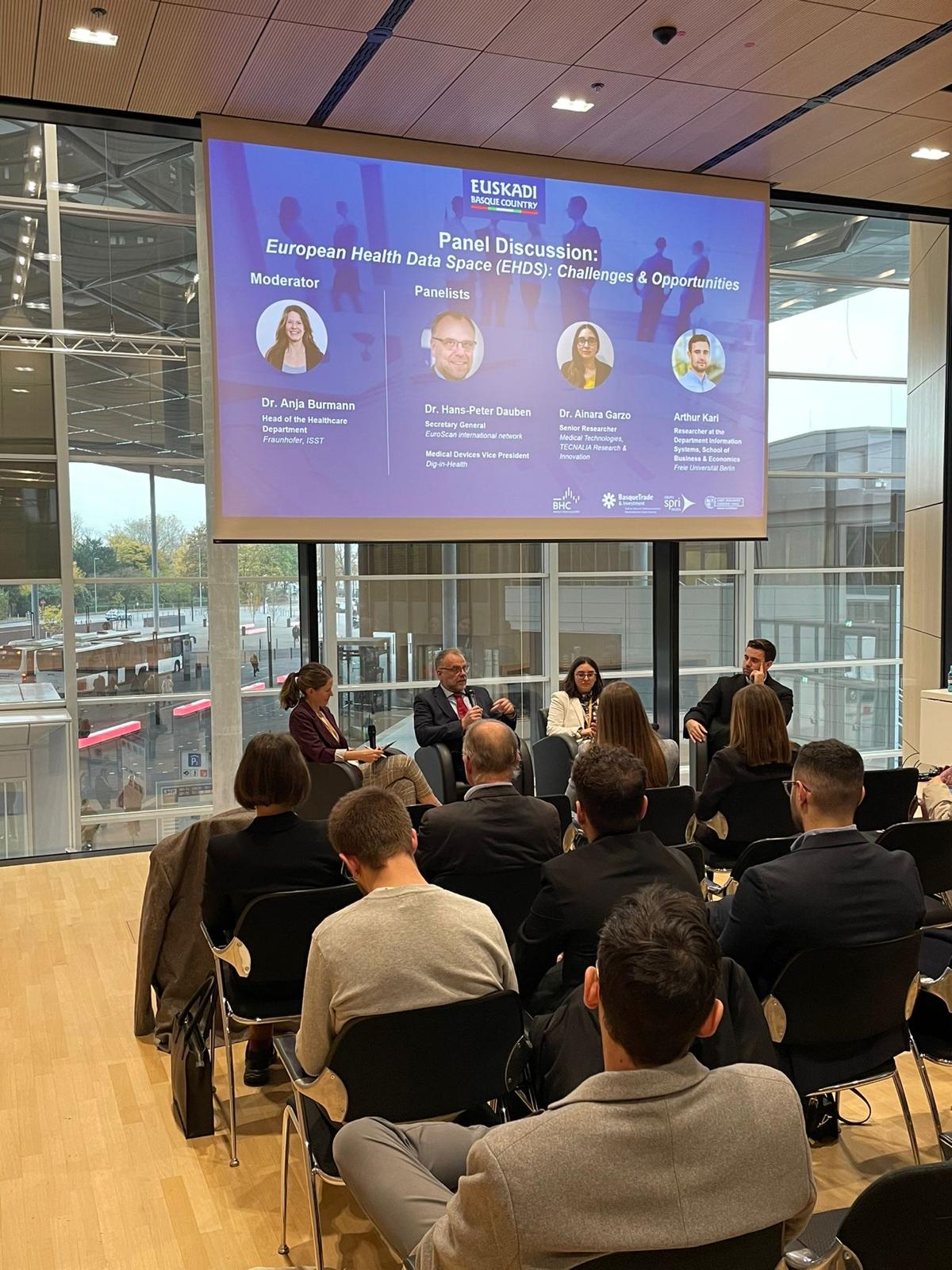Experts in the sector analyzed in a Side Event the challenges and opportunities offered by a digital, innovative, and interoperable healthcare system for health stakeholders.
The Basque Health Cluster, together with Basque Trade & Investment (BasqueTrade), the agency for the internationalization of Basque companies integrated within the SPRI Group, organized this week a panel titled “European Health Data Space (EHDS): Challenges and Opportunities,” as part of MEDICA 2024, one of the most prominent international gatherings in the healthcare sector.
The session, which received a warm welcome from the professional community with the participation of nearly 115 specialists, served as a forum to discuss the impact and opportunities that the EHDS presents for healthcare actors in Europe.
The panel was moderated by Anja Burmann, Director of the Health Department at Fraunhofer ISST, who facilitated a dialogue among experts in digital health such as Dr. Ainara Garzo Manzanares, Senior Researcher in Medical Technologies at TECNALIA Research & Innovation, who highlighted the transformative potential of emerging technologies like artificial intelligence and big data analytics in European healthcare, emphasizing how these tools could contribute to the development of more sustainable and effective solutions.
Alongside her, Prof. Dr. Hans-Peter Dauben, Secretary General at EuroScan int.net and Vice President of DIG-in-HEALTH, also shared his expertise in data interoperability, emphasizing the importance of system integration for healthcare providers in Europe. Dauben noted that interoperability is “key” to improving the quality and speed of healthcare services, enabling a much more effective access to and management of data.
Additionally, Dr. Arthur Kari, a researcher in the Department of Information Systems at the School of Business & Economics at Freie Universität Berlin, explored the regulatory challenges and technological opportunities the EHDS represents for enhancing data security in health data exchange.
The speakers agreed on highlighting that the EHDS is a central pillar for the creation of a European Health Union, aimed at facilitating cross-border access to health data, promoting both direct healthcare and research as well as public policy formulation. Furthermore, the EHDS will contribute to building a single market for digital health products and services, strengthening the role of European health companies and organizations in innovation and in building a more accessible and efficient healthcare system.
On the other hand, María Ribate, Head of Internationalization and Strategy of the BHC, emphasized the growth that the bioscience and biomedicine sector in the Basque Country has experienced in recent years, stating that “this sector already accounts for 2.5% of the GDP of the Autonomous Community of the Basque Country.” Ribate concluded her intervention by asserting that “the Basque Country is undoubtedly at the forefront of the global health sector.”
For her part, Ainhoa Ondarzabal, CEO of Basque Trade & Investment, underlined that this scenario represents a significant opportunity for the Basque Health Cluster and its collaborating companies. She also stated that “the EHDS will facilitate secure and efficient access to health data, driving innovation and the development of technological solutions in the Basque Country.”


